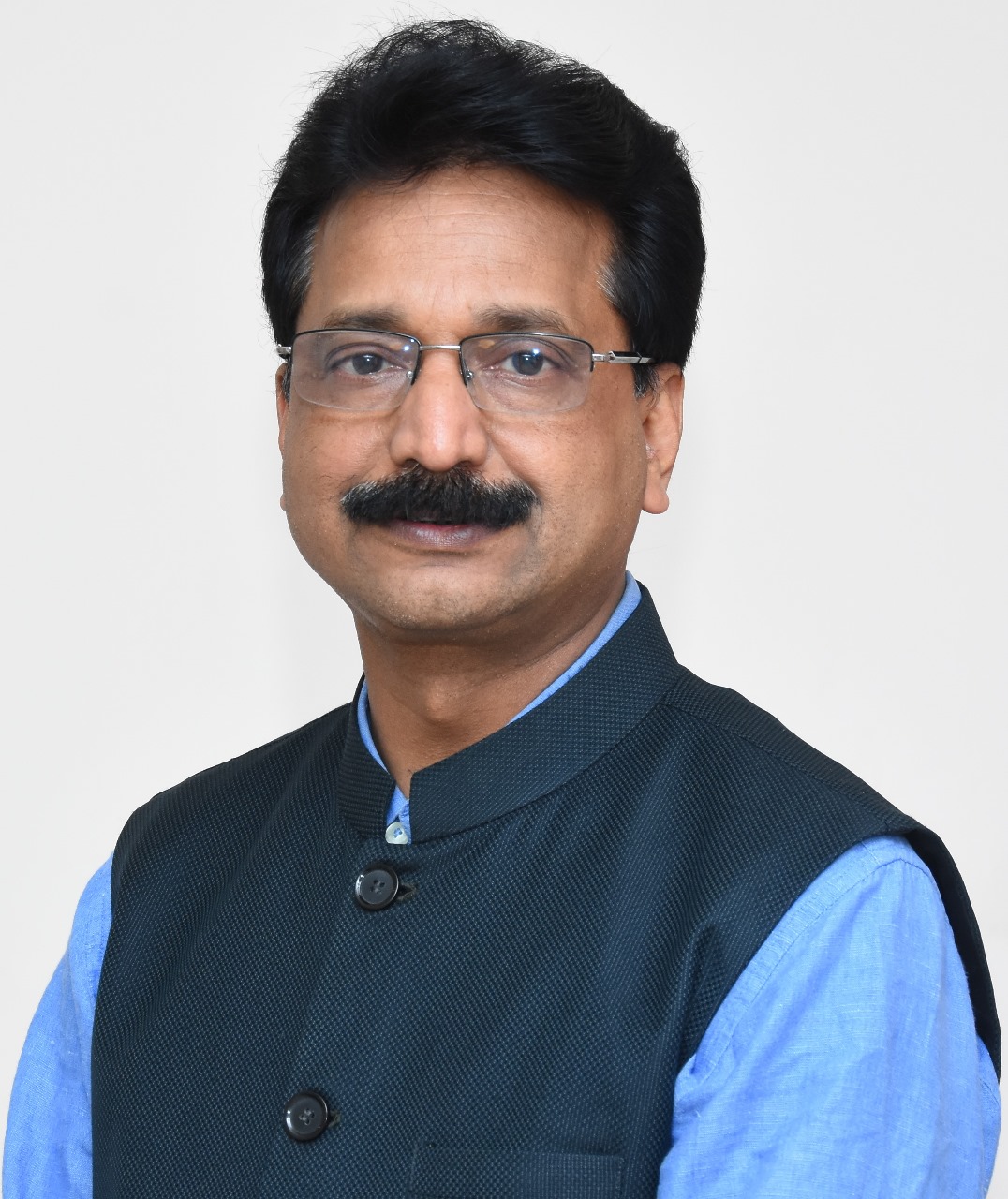Keynote Speaker
- Home
- Keynote Speaker

Prof. Vaidya Rabinarayan Acharya has currently been serving as the Director General of the Central Council for Research in Ayurvedic Sciences (CCRAS) since March 2022. Prior to this, he worked as a Professor of Dravyaguna (Ayurveda Pharmacology) at ITRA, Jamnagar from September 2007 to February 2022.
After completing his BSc in Botany Hons. and Ayurveda Degree from Utkal University, Odisha, he pursued MD and PhD from Gujarat Ayurveda University. With over 27 years of teaching and research experience in drug research, Prof. Acharya has authored five books, 10 chapters, published more than 365 research articles, and holds one patent.
He has contributed significantly to organizations like IGNOU and WHO, serving as a course writer and temporary advisor, respectively. Dr. Acharya has also been actively involved with the Ministry of AYUSH, Govt of India, in various capacities, such as Chairman of the Ayurvedic Pharmacopoeia Committee and a member of several committees like ASUDTAB, NMPB, SAG etc.
Prof. Acharya has led over 10 research grant projects and guided 40 Ph.D. and 64 Post Graduate theses/dissertations in Dravyaguna. His research focuses on Anukta Dravya (Extra Pharmacopoeial Drugs), with the development of pharmacopeial standards and establishment of ethnopharmacological claims for over 42 Indian medicinal plants. He has also standardised shodhana methods for poisonous plants (scheduled E1 drugs) used in Ayurveda pharmacopoeia and critically edited two Nighantus. He contributed in establishing the pharmacovigilance programme for Ayurveda drugs in the country by organizing many awareness, training, and scientific programmes.
Representing India in various capacities in ten different countries, Prof. Acharya has actively participated in WHO meetings addressing herb-drug interaction, pharmacovigilance, and research methodology training. In his current role as the Director General of CCRAS, he has introduced initiatives like SPARK, PG-STAR, SMART, AGNI, ARMS and APTA to promote research among students, teachers, and physicians in the field of Ayurveda.
Being recognized for his contributions, Prof. Acharya has received the Best Teacher Award and a cash prize of 2,00,000 LKR for Drug Research, as well as the Best Research Paper Award for literary research in the field of Ayurveda from the Ministry of Ayush, Govt of India. He was also honoured with the IASTAM National award in 2022 for drug research and Society of Ethnopharmacology and SFE-outstanding National Ethnopharmacology award 2024 towards his contribution for ethnopharmacology.
In the quest for sustainable living, the One Health approach has emerged as a pivotal strategy, recognizing the intricate ties between human, animal, and environmental health. This holistic framework addresses critical issues such as pollution management, antimicrobial resistance, zoonotic disease control, and food and water safety. Central to this paradigm is Ayurveda, the ancient Indian system of traditional medicine, which embodies principles deeply resonant with One Health.
Ayurveda's scope extends beyond human health to encompass the well-being of all living beings, including animals, plants, and the environment. It emphasizes a fundamental interconnectedness between the individual and the universe, highlighting how environmental alterations can impact community health through the principle "yatpindetatbrmhande”. Concepts within Ayurveda, such as “Janapadodhwansa”, elucidate the implications of infectious diseases and environmental pollution on society's health. The verse from Charaka Samhita (Sutrasthana 1.15), "Sarve bhavantu sukhinah, sarve santu niramayah," embodies the holistic aspiration for the health and wellbeing of all living beings, resonating with the spirit of One Health.
Ayurveda stands poised to contribute significantly to the realization of One Health objectives due to its global acceptance, manifold health benefits, and utilization of safe, effective, and economical therapeutic measures. However, achieving One Health through Ayurveda necessitates raising awareness about Ayurvedic principles of holistic health, disease prevention, animal welfare, and environmental sustainability.
A crucial step towards actualizing One Health goals involves leveraging Ayurveda's natural remedies for healing humans, animals, plants, and the environment. This entails methodically developing and implementing strategies integrating Ayurvedic fundamentals into broader health initiatives.
In conclusion, Ayurveda emerges as a cornerstone of the One Health framework, offering holistic solutions for sustainable living and resilience across ecosystems. Its timeless wisdom, deeply rooted in ancient principles of holistic healing, resonates with the goals of One Health and Health for All. By recognizing and embracing the interconnectedness of human, animal, and environmental health, Ayurveda and One Health converge to pave the way for a healthier, more harmonious future for all beings. Through synergistic integration, Ayurveda's holistic approach, emphasizing preventive strategies, natural remedies, and equitable access to healthcare, complements the broader objectives of One Health, ensuring holistic well-being across communities and ecosystems. Together, Ayurveda and One Health offer a transformative path toward sustainable living, fostering resilience and promoting the health and vitality of individuals, societies, and the planet.
*****